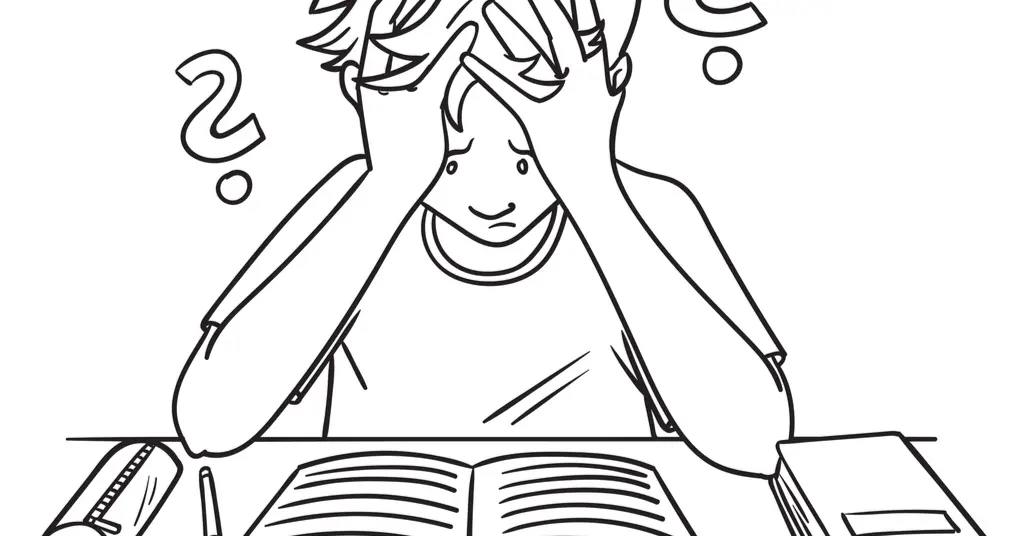The ACT® Reading exam includes passages from which you will be asked questions. These questions will test your understanding of the passage and its purpose. Questions include both detailed questions as well as word-meaning questions. Detailed questions are ones that require you to identify and explain a particular detail within the passage, while word-meaning questions (meaning-in-context) are designed to check your understanding of a particular word or phrase in context of the passage.
Let’s learn a little more about detail and word-meaning questions in the ACT Reading exam and look at a few tips to help ace this section!
Detail Questions
Here’s a breakdown of what to expect from questions in the ACT Reading test that ask about details in the passage. Note that each question specifies a portion of the text to pay attention to.
Example #1
The third paragraph (lines 22–31) establishes all of the following EXCEPT:
a. ____
b. ____
c. ____
d. ____
Example #2
It may reasonably be inferred from lines 6-12 that:
a. ____
b. ____
c. ____
d. ____
Example #3
The fourth paragraph (lines 34–40) suggests that one of the main points of the passage is ______:
a. ____
b. ____
c. ____
d. ____
Tips for Success
- To answer questions that focus on specific lines, paragraphs, or broader details, you must understand the surrounding context. Be sure that you read the surrounding sentences to ensure that you understand the information that introduces, supports, or follows the given lines.
Failing to pay attention to the context around the detail in question leaves room for misinterpretation. Some answer choices will take advantage of this kind of error. You can avoid mistakes by reading the entire passage and reviewing the context before selecting an answer choice.
- When making inferences, be sure that you use supporting evidence from the text itself. Inference questions will require you to draw conclusions, make connections, or recognize relationships occurring in the passage.
To be accurate with inference questions, you won’t need to use any outside information. All you’ll need is the information from the passage to select your answer choice. So be sure to make notes while reading and gather information only from the passage for your answers. The process of elimination is also a helpful tactic with these problems, as you can eliminate any answer choices that are not supported by the information stated in the passage.
Word-Meaning Questions
You will also find questions that ask about word meanings. These questions are more specific than the detailed questions discussed above, as they point to an exact word to evaluate.
Here are some examples of Word Meaning questions:
Example #1
According to the information provided in the first paragraph (lines 1–8), the use of the word _______ in the phrase “_____________” (lines 6-8) instead of ______ implies which of the following?
a. ____
b. ____
c. ____
d. ____
Example #2
As it is used in line 13, the word _______ most nearly means:
a. ____
b. ____
c. ____
d. ____
Tips for Success
- Be prepared to evaluate words with more than one meaning. Questions that assess your skills with word meanings can be more complicated than they appear. To pinpoint the correct definition of a word (as you would with Example #2), be sure that you evaluate the context.
The meaning of a word may change in accordance with how it is used. If a question appears to have more than one correct answer, find the option that makes the most sense for the context.
- Some questions require more than one step. Example #1 requires that you know the meanings of the word used and the alternate word. Once you evaluate the meanings of both words, pinpoint any variations in their implications to select your answer choice. What does the author’s word imply that the alternate word does not? You will use the information in the first paragraph to find your answer.
As you prepare for the ACT Reading test, be sure that you practice the skills necessary for detail and word-meaning questions. You can ensure that your practice work is realistic to the style and level of difficulty that you will face on the official ACT exam by using UWorld’s ACT Prep Course. Our online learning tools include thousands of sample questions, detailed answer explanations, and performance tracking data. Try it out to streamline your study plan, pinpoint the areas you can improve, and boost your scores!




